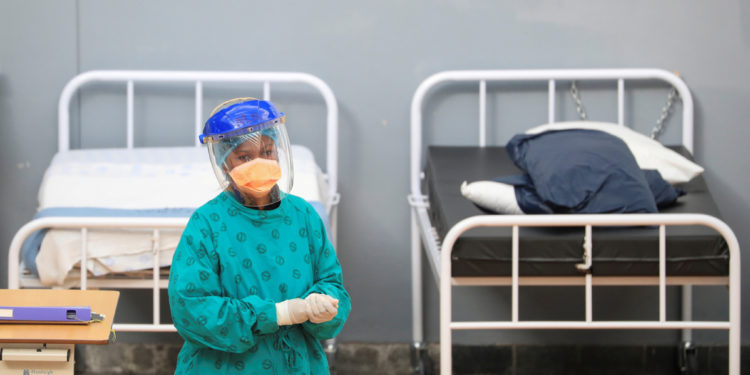While progress has been made in Africa in terms of curbing the spread of coronavirus, the World Health Organization is calling on governments to step up readiness and response measures, particularly at the subnational levels.
As of Aug 14, Africa had recorded 1,084,687 confirmed cases and 24, 660 deaths.
According to the Africa Centers for Disease Control and Prevention, average new cases reported per day from Aug 6 to 13 in the continent stands at 11,324, a decrease from the previous week’s 14,447.
The Africa CDC said five countries account for 74 percent of all cases in the continent: South Africa with 53 percent, Egypt with 8.9 percent, Nigeria with 4.5 percent, Ghana with 3.9 percent and Algeria with 3.5 percent.
“Not only must we keep up with evolving trends, we must also anticipate, predict and act faster to head off potentially disastrous outcomes,” Dr. Matshidiso Moeti, WHO regional director for Africa, said in a statement on Aug 13. “Areas of high transmission, as well as localities with relatively fewer infections, both deserve attention. In short we must be strong on all fronts.”
A recent assessment carried out by the WHO based on self-reporting by 16 countries indicated improved coronavirus response capacity in terms of surveillance, coordination, case management and laboratory capacity, as well as infection prevention and control.
The score increased from 62 percent six months ago, when the virus was first detected in the continent, to 78 percent.
The UN agency said despite the fact much progress has been made at the national level, countries are lagging behind at the district level, specifically on coordination, infection prevention and control as well as clinical care for patients.
This is despite the fact that unlike the onset, where the virus affected high-density urban areas, cases are now being recorded in informal settlements and could move to rural areas in the coming days.
“In Africa, curbing coronavirus is a marathon and not a sprint. We are observing multiple local outbreaks, each with their own infection patterns and peaks. It is by bolstering the response at the community level that we will win this race. The response must be integrated into the fabric of every health district,” Dr. Moeti said.
In Kenya, for instance, while capital Nairobi and the port city of Mombasa continue to lead in terms of coronavirus infections, all 47 counties have reported confirmed cases.
With that in mind, the government through the ministry of health has been urging county governments to prepare to handle the outbreak by ensuring health centers are well–equipped, and healthcare workers are trained to handle infected cases.
The ministry has also been urging the public, especially residents of rural areas, to observe health and safety guidelines like washing hands with soap, observing social distancing and wearing masks when in public.
Governors have taken the lead in sensitizing residents in rural areas to observe guidelines and curb spread of the virus.
On Aug 12, for instance, Alfred Mutua, governor of Machakos County, visited Kithyoko shopping center along the Mwingi-Garissa Road, where he urged local people to take the coronavirus pandemic seriously and observe guidelines.
As it was a market day, the governor was able to reach a large crowd of people, and also distributed face masks.









